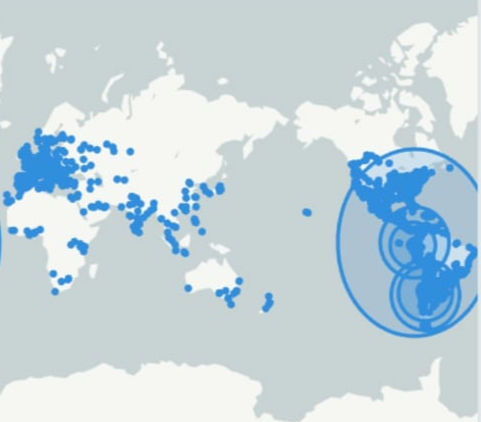POPULISM, DEBT & LIES
- ADN@+

- 8 sept 2020
- 4 Min. de lectura
JUSTICE, POPULISM, AND ECONOMICS
The economy grows when justice creates trust. The economy shrinks when populism destroys institutions.
Martin Wolf in The Financial Times (2020) defines Populists as the ones that “distrust institutions, especially those that constrain the “will of the people”, such as courts, independent media, the bureaucracy, and fiscal or monetary rules. Populists reject credentialed experts. They are also suspicious of free markets and free trade.”
He continues by saying the following: “Rightwing populists believe certain ethnicities are “the people” and identify foreigners as the enemy. They are economic nationalists and support traditional social values. Often they put their trust in charismatic leaders. Leftwing populists identify workers as “the people” and the rich as the enemy. They also believe in state ownership of property.”
Both destroy institutions.
Dialogue initiatives build trust.
By the beginning of the millennium, Pranab Bardhan, in Social Justice in the Global Economy (2001) wrote for “Economic and Political Weekly”, stating how: “All around in the world today many advocates of social justice are in some state of despair”. One could argue, after 20 years, how –still- “Some of them fear that social justice is a lost cause in a global economy”. His paper analyzed some of the opportunities and insecurities caused by globalization and tried to “show how a great deal of social justice remains within our grasp, even within the very real external constraints posed by globalization”.
In the midst of tensions among the USA and China, it seems that growth is absent, justice is getting away, and social justice got replaced by populism in the global superpowers.
It is our duty to align or die, or is our duty to dialogue and reorient?
Some weeks ago, I decided to walk the talk of dialogue in political terms, not only in a country but in the region and around the globe.
We have discussed enough in Ecuador and in the UK, how the first was the perfect country as a lab of populism and institutions destruction, and we have collected quantitative and qualitative evidence of how corruption acts, grows, acquires absolute power, absorbs resources, and enriches the powerful populist in detriment of the people who raised them to power.
Ecuador had in Velasco Ibarra a leader that became 5 times President. Velasco was not corrupt, they say, but his team probably was, they also say. He died without any sentence or without any judicial cause that would not allow him to go back to his Quito and Ecuador.
Rafael Correa, from Guayaquil and Ecuador, on the other hand, as of yesterday will not be able to go back to Ecuador, unless he wants to stay 8 years in prison. From Monday, January 15, 2007, until 2557 consecutive days later on Wednesday, January 15, 2014, he had won elections for 7 times.
In his last election, on February 17, 2013, President and candidate Rafael Correa obtained 57.17 percent of support, managing to be re-elected for the second time (3 governments in a row). During that time, 2007-2013, and until the end of his government, the external debt grew as depicted in the following graph:
DEBT IN ECUADOR

Correa left power in 2017.
From 2010 until 2015 he had taken external and internal debt from less than 15 billion USD to more than 30 billion USD.
That means, a 15% increase of 2020 GDP and more than 3 billion USD per annum. Compared to a GDP of 100 billion USD, that means an average increase of 3% of 2020 GDP yearly.
15% of GDP lost
To get an idea of how much that represents for an average family, consider a population of 15 million inhabitants, which means 67 USD per month per family (with an average family of 4 members).
That means 2,22 USD/day. If the poverty line were that, at least one member of each family would be free of poverty with the amount spent via debt.
If poverty, by the end of his government covered only 25% of the population, no single person should have been poor by the end of 2020.

Debt, Poverty, and Failed Populist Policies in Ecuador
The problem is that poverty already started to grow before 2016 when he decided not to run again and leave the power in the hands of a successor that would be the one to blame for the coming disaster.
He knew that the economy was destroyed: poverty was still around 20% by the end of his last term. The model failed in social and political terms already in 2016.
The worst: the fight against poverty was unsuccessful and the debt rose successfully. The country was left without savings. The hope was robbed from the country.
That is what was felt during the Covid19 crisis that affected brutally to the Guayaquil, Quito, and the whole of Ecuador, where the debt of 15% of GDP was badly needed. The resources spent by Rafael Correa got the administration of his appointed successor, Lenin Moreno out of resources absolutely required, compared to the expenses of developed countries:

Not what we want at all!
By using that 15% of GDP for a savings fund instead of building roads with problems of corruption, as decided and confirmed yesterday by the Judiciary in Ecuador, the country were able to spend the average between what the United States of America and Belgium did, being the last the host country of the European Union.
Sad right?
Those are the reasons to walk the talk, lead the dialogue in countries such as Ecuador, avoid the same process to happen in Chile, and in all Latin America, even in America itself.
This is not about left vs right. It is about technical truths vs populist lies.
Roberto F. Salazar-Córdova
Santiago, Chile
September, 8th, 2020
References










Comentarios